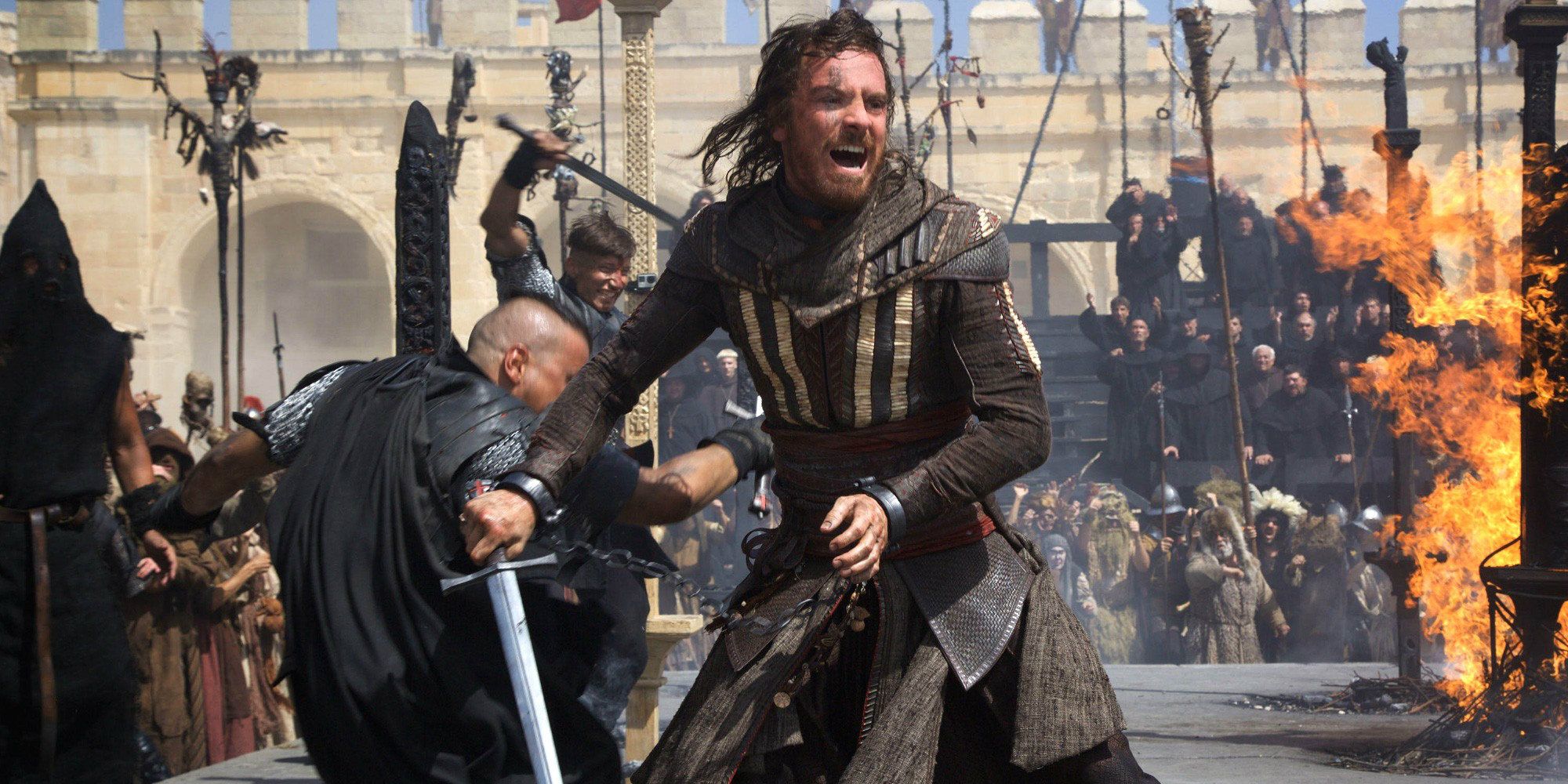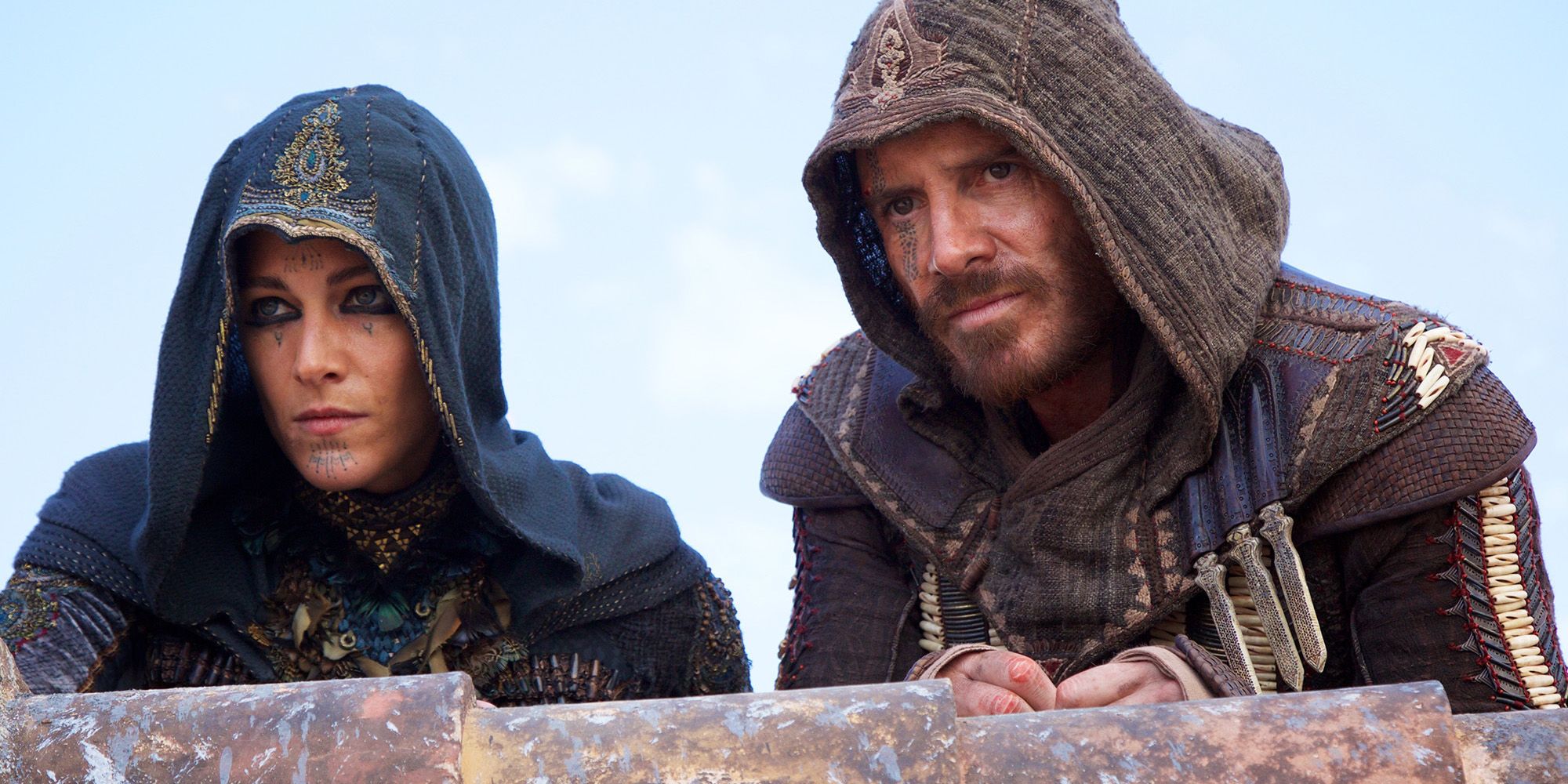In a couple of short weeks, the video game movie genre will step back up to the plate and will take another swing at cinematic glory. Assassin's Creed is the new hope for gamers worldwide, as the best-selling franchise has been adapted for the big-screen for the first time and looks to legitimize the genre.
Assassin's Creed stars Michael Fassbender (X-Men: Apocalypse), Marion Cotillard (Allied), and Jeremy Irons (Batman V Superman: Dawn of Justice), and is directed by Justin Kurzel (Macbeth). The movie follows Callum Lynch, a criminal who is apprehended by a mysterious organization who opens his eyes to a centuries old war between the Templar Knights and Assassins. They put Lynch through an experimental procedure where he is able to relive and alter his ancestor's memories during the volatile Spanish Inquisition.
The video game series is known for taking place at during historical periods. Various character's stories have taken place during the Italian Renaissance, the French, American, and even during the Haitian Revolutions. The game's central construct of reliving ancestor's memories opens up a world of possibilities for the storytellers and Assassin Creed's director recently explained the sequel possibilities to Premiere:
"I thought about maybe not going too far back, maybe into, like, the '50's in America. You know, I think that could be a really interesting period around the Cold War. Traditionally, I think they've gone back further than that. Recent history is something I'm quite interested in. You can definitely kind of do a film-noir thing to it."
Setting the film's sequel in the 1950s would be a huge departure for the series. The time period would admittedly offer an ample opportunity for espionage and action, given the climate of the growing Cold War at the time. However, while the Assassin's Creed franchise does take place in the past, the adventures and time periods that are typically explored occurred before contemporary times. This has kept the action focused on sword play and hand-to-hand combat, over modernized weaponry and fighting tactics. While it would could be fun to follow Assassins with hidden blades up the sleeves of their business suits, it doesn't necessarily line up with the direction of the game line.
Kurzel goes on to explain the methodology behind the varying time periods of the franchise:
"I think there's great scope there to kind of go into. I think you have to go into volatile points of history, that's why The Spanish Inquisition work so well, because you got something the assassins could rally against in terms of the religious persecution that was going on there."
Drama is always heightened when set on the backdrop of social unrest. The Spanish Inquisition was a time of endless bloody battles spurred by religious convictions and power. However, it was also a period when many of the world's greatest philosophers, inventors, and thinkers made their mark as well.
A huge draw of the Assassin's Creed franchise is that it affords its audience a chance to not only engage in a fun action-adventure, but also an exciting opportunity to learn about the past organically. While the graphics, breathtaking visuals and dynamic action initially attracted players to the property, it also gives them a rare opportunity to literally walk through history - supplying encyclopedic breakdowns of significant characters and moments from the past, as to further set it apart from other button-mashing experiences. It seems Kurzel is acutely aware of the strengths of the series - so hopefully, Assassin's Creed will prove successful enough to actually get a sequel at all.


